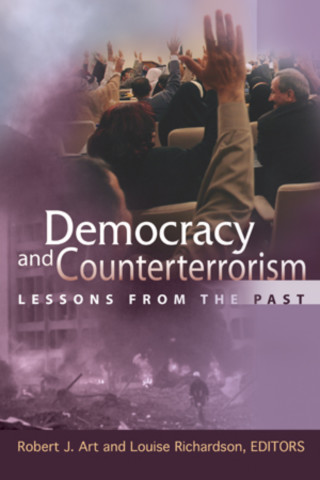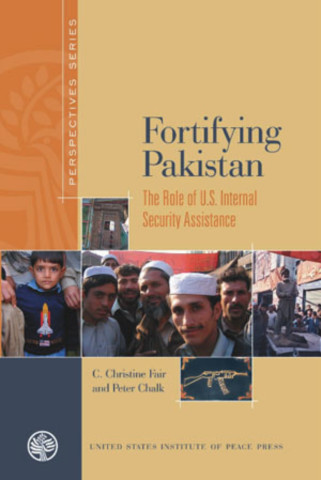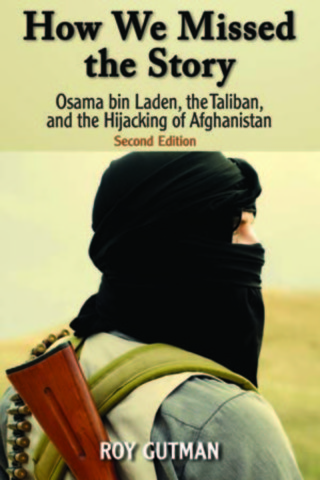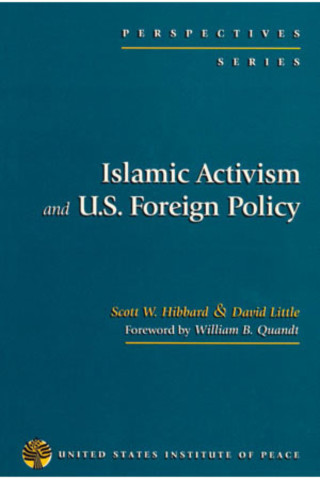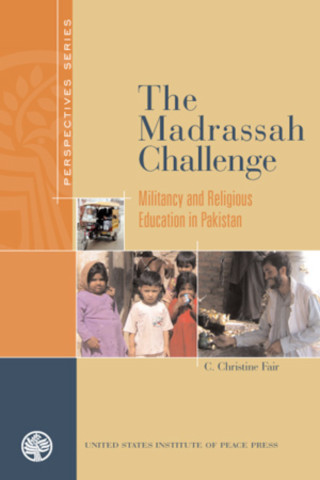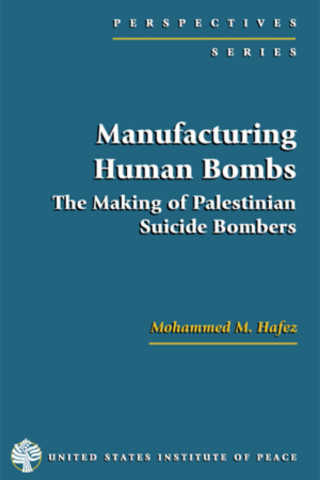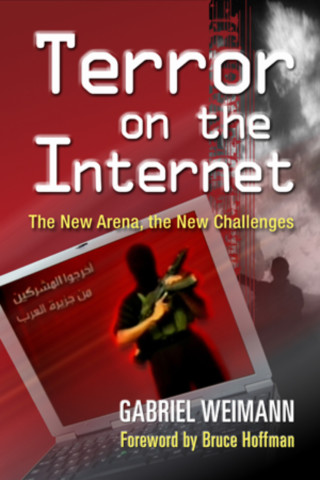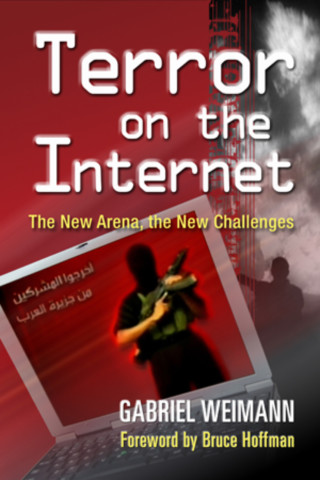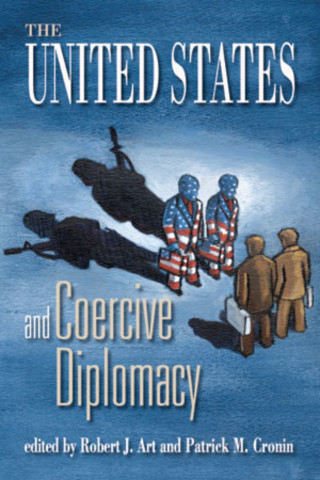Catalog
- Sort by
A comparative study of the policies, strategies, and instruments employed by various democratic governments in the fight against terrorism.
The authors offer a comprehensive examination of Pakistan’s internal security environment and the effectiveness of its criminal justice structures and assess the impact and utility of the principal United States initiatives to help Pakistan strengthen its internal security.
In How We Missed the Story, Second Edition, Pulitzer prize-winning journalist Roy Gutman extends his investigation into why two successive U.S. administrations failed to head off the assaults of 9/11 and to look at the U.S. military intervention that followed. Anyone who thinks Afghanistan doesn't matter, or that Washington can walk away once again, is "missing the story."
For many in the West, political violence in Algeria, the Middle East, and elsewhere has come to symbolize the threat of “Islamic activism.” Terrorist attacks such as the bombing on the World Trade Towers have solidified this view. Western governments, however, must deal with the challenge of extremism in the broader context of their relations with diverse states with contrasting histories, geographies, and peoples.
To assess this challenge, the Institute brought together a distinguished group of policy analysts, practitioners, and scholars for a series of frank discussions. The sessions analyzed the nature of Islamic activism – including moderate political parties and militant extremists – and the options for policymakers to mitigate violence in a range of cases.
The main problem for the United States, participants concluded, is how to confront militant extremism while recognizing the importance of religious identity and the legitimate need in many countries for social and political reform. A foreword by William B. Quandt, Middle East expert and former National Security Council staff member, spells out how policymakers can respond most effectively to the challenge of Islamic activism.
Fair explores the true significance of the madrassah and its role in Pakistan’s educational system. She chronicles the Pakistan government’s efforts to reform the madrassah system and offers important policy implications and suggestions for initiatives that might address some of the main concerns emanating from ostensible ties between education and security inside and outside Pakistan.
Suicide bombings have become a terrifyingly familiar feature of contemporary warfare and insurgency. But explanations of such attacks are typically either too narrow or too superficial to enable us to understand—and thus combat—this complex and deadly phenomenon.
In this slim but remarkably balanced, informative, and insightful volume, Mohammed Hafez delves beneath the surface as he explores the case of Palestinian suicide bombers during the al-Aqsa intifada that began in 2000. Drawing on extensive research in the West Bank and Israel, Hafez reveals an intricate web of factors that fueled the campaign of suicide attacks. To understand the bombings, he argues, we must examine the interrelation among the motives of the individual “martyrs,” the calculations of the organizations that deployed them, and the attitudes of a victimized society. This approach yields not only a penetrating look at suicide bombers but also policy-relevant lessons for dealing with extreme political violence in places such as Iraq, Chechnya, and Afghanistan.
Highly readable, wonderfully concise, and packed with useful information, Manufacturing Human Bombs offers students an excellent introduction to its subject; for readers already well versed in terrorism and the Middle East, the volume offers a rare combination of rich empirical data, considerable analytical breadth and depth, and refreshing evenhandedness.
The war in Iraq was supposed to be easy. Instead it has delivered the message that Islamic resistance and martyrdom can defeat the only remaining superpower, just as jihadists drove the Soviet Union from Afghanistan during the 1980s. Now a haven for jihadists, Iraq has entered a civil war whose duration, scope, and magnitude have yet to be determined.
The overwhelming majority of suicide attacks in Iraq have targeted Iraqi security forces and Shia civilians, not coalition forces. The perpetrators appear to be largely non-Iraqi volunteers. Many are from Saudi Arabia, but substantial numbers have come from Europe, Syria, Kuwait, Jordan and North Africa. They are foiling U.S. plans to stabilize the country and turn it into a democratic regime and an ally in a region of religious radicalism, entrenched authoritarianism, and hostile states with nuclear ambitions.
Understanding the phenomenon of suicide bombing in Iraq is therefore vitally important for U.S. national security, foreign policy in the Muslim world, and the war on terrorism. This study, the first of its kind on the Iraqi insurgency, draws extensively on open-source intelligence and papers of record, primary sources from insurgent groups including online documents and videos, and interviews with U.S. servicemen who have served in Iraq. It examines the history of suicide bombing in Iraq and many other countries, theoretical perspectives on suicide bombing, the varied factions that comprise the insurgency, the ideology and theology of martyrdom supporting suicide bombers, their national origins and characteristics, and the prospects for a “third generation” of transnational jihadists forged in the crucible of Iraq.
Drawing on a seven-year study of the World Wide Web and a wide variety of literature, the author examines how modern terrorist organizations exploit the Internet to raise funds, recruit, and propagandize, as well as to plan and launch attacks and to publicize their chilling results.
Drawing on a seven-year study of the World Wide Web and a wide variety of literature, the author examines how modern terrorist organizations exploit the Internet to raise funds, recruit, and propagandize, as well as to plan and launch attacks and to publicize their chilling results.
With increasing frequency, U.S. leaders look to achieve their foreign policy goals by marrying diplomacy to military muscle. Since the end of the Cold War, "coercive diplomacy"—the effort to change the behavior of a target state or group through the threat or limited use of military force—has been used in no fewer than eight cases.
But what, exactly, has the concept of coercive diplomacy meant in recent practice? What are coercive diplomacy's objectives? How does it operate? And how well does it work?
To answer these questions, Robert Art and Patrick Cronin have enlisted a distinguished cast of scholars and practitioners to investigate the record of the past twelve years. Each author focuses on one of coercive diplomacy's recent targets, a remarkably diverse group ranging from North Korea to Serbia to the Taliban, from warlords to terrorists to regional superpowers.
As Robert Art makes clear in a groundbreaking conclusion that will give scholars food for thought and policymakers reason to pause, those results have been mixed at best. Art dissects the uneven performance of coercive diplomacy and explains why it has sometimes worked and why it has more often failed.

